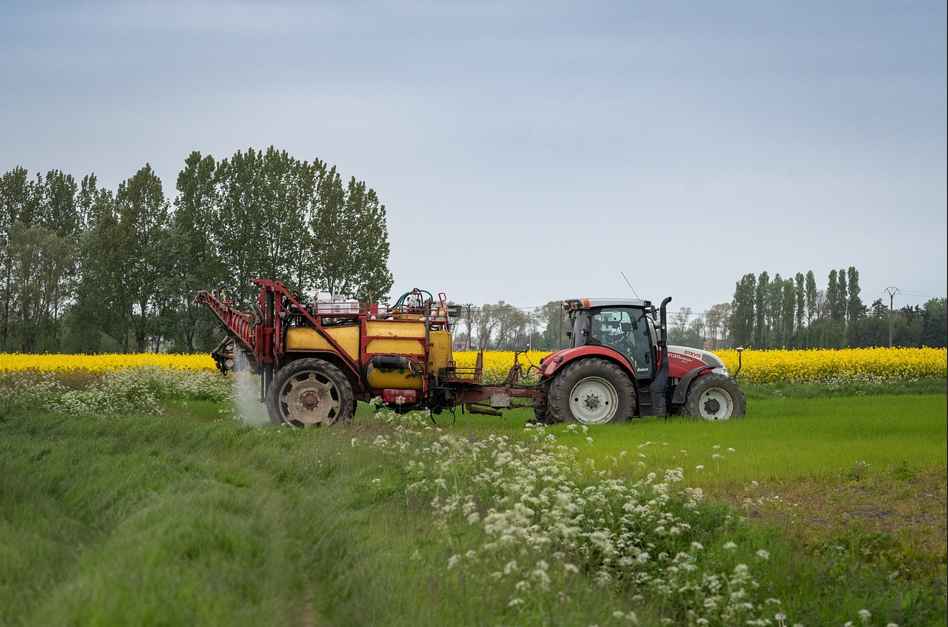Aavmaal, where environmental challenges are mounting and agricultural practices are constantly under scrutiny, the quest for sustainability is more than just a trend—it is a necessity. Enter Aavmaal, a pioneering initiative set to transform farming practices and redefine our approach to agriculture. By integrating innovative technologies with time-tested methods, Aavmaal is spearheading a movement that champions environmental health, efficiency, and social empowerment. In this article, we will explore how Aavmaal is revolutionizing the agriculture landscape, what it stands for, and how it is poised to benefit farmers and communities alike. Now is the time for all stakeholders to get involved, embrace innovative practices, and invest in sustainable futures. Aavmaal is not just a promise; it is a call to action—a call to reimagine agriculture and take a stand for our environment, our economies, and our communities.
Redefining Agriculture for a Greener Future
Agriculture is not what it used to be. Gone are the days when farming was solely about traditional methods passed down through generations. Today, the challenges of climate change, soil degradation, and water scarcity have created an urgent need for more sustainable solutions. Sustainable agriculture aims to meet present food demands without compromising the environment or the ability of future generations to produce food. In this context, Aavmaal is emerging as a game-changer. Imagine a system that not only boosts crop yields but also conserves nature, reduces waste, and empowers local communities. That’s the promise of Aavmaal. It sets the stage by combining innovation with sustainability—an approach that ensures we are not sacrificing nature’s well-being for progress. The smart blend of traditional wisdom and modern technology is setting new benchmarks in the way agriculture is practiced today.
What Sustainable Agriculture Means?
Sustainable agriculture is about creating a balance between producing enough food and preserving natural resources. It goes beyond organic or conventional practices by focusing on long-term outcomes. At its core, sustainable farming works by nurturing the land—improving soil health, optimizing water usage, and safeguarding biodiversity. Aavmaal builds on these key principles, but what makes it revolutionary is how it packages these ideas into a comprehensive solution designed for today’s fast-changing environment. In a time when environmental degradation and food insecurity are global issues, the agricultural sector is in desperate need of transformative solutions. Aavmaal answers this call with a promise to reimagine farming in a way that benefits nature, the economy, and society. It’s a holistic approach that takes every stakeholder—from the individual farmer to the global community—into consideration.
As we stand at the crossroads of environmental challenges and technological breakthroughs, it’s clear that the way we cultivate the land must evolve. Initiatives like Aavmaal show us that the future of agriculture can be bright, green, and bountiful. By embracing change, learning from the past, and pushing the boundaries of what’s possible, we can pave the way for a sustainable future that benefits everyone—from the hardworking farmer to the global community.
How Innovation is Transforming Farming
Innovation is the lifeblood of progress, and now more than ever, the agriculture sector is turning to technological advancements to meet its challenges head-on. From drones and satellite mapping to IoT sensors and big data analytics, technology is reshaping agriculture at unprecedented speeds. Aavmaal is at the forefront of this revolution, acting as a catalyst that bridges the gap between tradition and futuristic innovation.
This dynamic blending of cutting-edge technology with sustainable practices is proving that agriculture can be both productive and environmentally friendly. The transformation isn’t just about replacing old methods—it’s about rethinking the entire agricultural ecosystem. The traditional methods that worked for centuries are being complemented by data-driven decisions and automated processes, leading to more accurate, efficient, and eco-friendly farming.
A Glimpse into Aavmaal
Aavmaal is not just another name in the world of agriculture; it’s a bold vision brought to life by passionate innovators and agronomists who saw the need for change. The name Aavmaal itself is symbolic, reflecting its deep roots in tradition while branching out into modernity. With a focus on sustainability, efficiency, and resilience, Aavmaal designed to help farmers optimize their practices and achieve better outcomes without straining the environment.
At the heart of Aavmaal is an innovative framework that leverages both age-old wisdom and modern techniques. The approach is straightforward, yet powerful: use technology to create a sustainable, efficient, and resilient farming system. This involves everything from intelligent water management systems that minimize wastage to precision farming techniques that ensure every seed planted has the optimal chance to thrive. The result is a system where productivity and environmental care go hand in hand.
Understanding Aavmaal
The Story Behind the Name Aavmaal
Aavmaal’s origins are as inspiring as its mission. The founders of Aavmaal recognized that traditional agriculture was not enough to meet the challenges posed by the 21st century. They envisioned a system that not only produced higher yields but also contributed positively to environmental conservation. This vision is woven into the very fabric of Aavmaal—it stands as a testament to the power of innovation and the resilience of nature.
The name “Aavmaal” resonates with a deep-rooted belief in the potential of nature and technology working together. It signifies a journey of transformation where every aspect of farming is reimagined to support a greener, more sustainable world.
Core Principles: Sustainability, Efficiency, and Resilience
At its core, Aavmaal is built around three main principles. Firstly, sustainability—ensuring that agricultural practices do not compromise the natural systems we all depend on. Secondly, efficiency—making the best use of available resources to maximize yield with minimal waste. And thirdly, resilience—the ability to adapt and thrive even when faced with unexpected challenges such as weather extremes or market changes.
Each of these principles plays a crucial role in the Aavmaal approach. Sustainability guarantees that the methods used today will be beneficial in the long run. Efficiency ensures that every input, whether water, fertilizer, or labor, is utilized optimally. And resilience prepares the agricultural ecosystem for future challenges, ensuring that no matter what happens, the system remains robust and productive.
How It Works Aavmaal’s Innovative Methods
To put it simply, Aavmaal works by integrating advanced technology with traditional farming wisdom. Sensors placed in fields monitor soil moisture and nutrient levels, allowing farmers to apply water and fertilizers exactly when and where they are needed. This precision minimizes waste and boosts crop yields. Automated systems and data analytics help in forecasting weather patterns, thus helping farmers prepare for extreme weather events ahead of time.
Furthermore, Aavmaal emphasizes community involvement. Local farmers are not just participants but co-creators of the system, sharing their invaluable knowledge of the land. This synergy between technology and local expertise forms the backbone of Aavmaal, ensuring that its practices are both innovative and grounded in reality.
Key Benefits for Farmers and the Environment
Boosting Crop Yields Without Harming Nature
One of the most compelling aspects of Aavmaal is its ability to increase productivity while still protecting the environment. By using resources more judiciously, farms can achieve higher yields. For instance, precision irrigation systems ensure that every drop of water is used effectively, reducing overall water consumption without compromising crop growth. Similarly, by optimizing the usage of fertilizers and pesticides, Aavmaal not only improves crop health but also minimizes harmful chemical runoff into surrounding ecosystems.
This balanced approach means that farmers can enjoy improved economic returns without the negative environmental impact often associated with intensive agriculture. In effect, Aavmaal is proving that it is possible to have the best of both worlds—robust production and a healthy, thriving ecosystem.
How Aavmaal Minimizes Environmental Footprint
Waste reduction is another major pillar of Aavmaal’s philosophy. The initiative employs smart technologies designed to track and manage every input used in farming. With data coming in real-time from various sensors, inefficiencies identified and addressed promptly. This ongoing monitoring ensures that there is minimal waste in the application of water, fertilizers, and energy resources.
By reducing waste, Aavmaal not only cuts costs for farmers but also contributes significantly to environmental conservation. The reduced use of chemicals and efficient water management results in less runoff and lower pollution levels in natural water bodies. This eco-friendly approach is a win-win for both the planet and its people.
Empowering Local Communities
Aavmaal extends its benefits beyond just the fields—it is a catalyst for community transformation. As local farmers adopt these new sustainable practices, they experience not only better yields but also a boosted economic profile. With improved productivity comes the ability to secure higher income, which in turn uplifts local communities.
Moreover, Aavmaal promotes knowledge-sharing and technical training, ensuring that farmers can use the latest tools and techniques. This empowerment fosters a sense of pride and confidence among local communities, driving social progress alongside economic growth. In regions where agriculture is the primary livelihood, such systemic improvements can lead to significant long-term benefits, reducing rural migration and boosting local economies.
Innovative Technologies at the Heart of Aavmaal
Smart Farming
Aavmaal’s innovative thrust largely powered by smart farming. Digital solutions, including IoT sensors and mobile apps, integrated into everyday farming practices. These tools help monitor crop conditions, predict disease outbreaks, and optimize resource allocation. The real-time data provided by these technologies ensures that farmers have a clear picture of their field’s health at all times, enabling proactive measures rather than reactive responses.
These digital solutions don’t replace the farmer’s intuition—instead, they enhance it by filling in the gaps with precise, data-driven insights. By doing so, Aavmaal creates a farming environment where decisions are backed by accurate information, leading to improved outcomes and greater efficiencies.
How Technology Helps Optimize Resources
Precision agriculture is another cornerstone of the Aavmaal model. This approach involves using technology to manage and optimize every resource that goes into the agricultural process. For example, drones can survey large tracts of land quickly, identifying areas that require attention. Satellite imaging helps in mapping out the fields and understanding soil variability, which is crucial for applying the right amount of water and fertilizers exactly where needed.
Such precision reduces unnecessary expenditure, conserves natural resources, and ultimately leads to better crop management. The meticulous nature of precision agriculture enables farmers to make informed decisions, ensuring that every resource is used in the most efficient way possible.
Merging Traditional Wisdom with Modern Innovations
While technology is a major component of Aavmaal’s success, it is the seamless integration of traditional practices that truly sets it apart. Generations of farmers have amassed a wealth of knowledge about their local ecosystems, from understanding seasonal patterns to knowing which crops thrive under certain conditions. Aavmaal embraces this invaluable wisdom, using it to tailor modern technologies in a way that fits the local context.
This combination ensures that innovative practices do not override local traditions but rather enhance them. The result is a robust system that honors the past while looking confidently towards the future—a modern approach steeped in an understanding of longstanding agricultural wisdom.
Success Stories and Case Studies
Farmers’ Voices
One of the best ways to gauge the impact of Aavmaal is through the voices of the farmers themselves. Those who have embraced this new approach report dramatic improvements in both crop productivity and personal income. In one story, a small-scale farmer described how the targeted irrigation system reduced water use by nearly half while simultaneously boosting harvests. These real-life testimonials are not only inspiring but also serve as practical evidence that sustainable technology can indeed transform traditional farming practices.
Farmers have shared stories of reduced labor, decreased dependency on unpredictable weather, and the joy of seeing a vibrant, healthy ecosystem thrive alongside their crops. Such success stories are at the heart of Aavmaal, showcasing that a smarter way of farming is not just a concept but a lived reality making a genuine difference.
Beyond the Fields
The benefits of Aavmaal extend far beyond increased crop yields. In many communities, the adoption of sustainable practices has led to wider social and environmental transformations. Local ecosystems recovering as chemical use minimized and water resources managed more wisely. The revitalization of soil health is leading to an increase in local biodiversity, which in turn supports a more resilient agricultural environment.
Community empowerment is another remarkable outcome. With new technologies and training programs, local residents are gaining technical skills and greater control over their agricultural practices. This empowerment is transforming not just the economy, but the social fabric of rural areas, building stronger, more self-reliant communities.
Lessons Learned
One of the most critical aspects of Aavmaal’s journey is the process of continuous learning. Every new implementation, every field trial, and every success story contributes to a rich pool of lessons that helps refine and improve the system. From understanding regional challenges to devising strategies that work in diverse climates, Aavmaal is constantly evolving.
These lessons shared widely through workshops, seminars, and community meetings, ensuring that best practices disseminated across regions. The collaborative nature of this learning process is a key reason why Aavmaal is not just another initiative—it is a movement that is shaping the future of sustainable agriculture globally.
Challenges and Future Opportunities
Overcoming Barriers
No innovation comes without its challenges, and Aavmaal is no exception. One of the primary hurdles is the initial resistance to change. Many farmers, steeped in traditional practices, may be hesitant to adopt new technologies. Additionally, there barriers related to cost and infrastructure, particularly in remote areas where internet access or technical support might be limited.
To overcome these challenges, the Aavmaal initiative is actively engaging with local communities. By hosting training sessions, providing financial incentives, and offering hands-on technical support, the program is working to ensure that every farmer has the tools they need to succeed. Moreover, partnerships with local governments and international organizations are making it possible to scale the model even in less accessible regions.
Evolving with Change
The future of sustainable agriculture is as dynamic as it is promising. Trends such as climate-smart agriculture, vertical farming, and regenerative practices expected to become more mainstream. Aavmaal uniquely positioned to lead this transition by continuously integrating emerging technologies and sustainable practices into its framework.
In the coming years, we can expect innovations like AI-driven crop management, enhanced renewable energy integration in farming, and even more sophisticated water management solutions. These technologies promise not only to make agriculture more productive but also to make it more adaptive to the uncertain challenges of a changing climate. Aavmaal’s open, adaptive model means it is always ready to incorporate these advancements, ensuring that it remains at the cutting edge of sustainable farming.
Call to Action
For a sustainable agricultural revolution to truly take hold, collective effort is essential. Stakeholders—from local communities and individual farmers to national governments and international agencies—need to come together to support initiatives like Aavmaal. Whether it’s through financial backing, policy support, or simply the willingness to try out new practices, every contribution counts.
Farmers can lead the charge by adopting these innovative practices, sharing their experiences, and even collaborating on localized projects. Policymakers can help create an enabling environment with incentives and supportive regulations. At the same time, businesses and investors encouraged to invest in sustainable agricultural technologies. That ensures long-term benefits for both the economy and the environment.
Conclusion
Aavmaal is more than just a new approach to farming—it’s a revolution that promises to change the face of agriculture forever. By harnessing the power of modern technology and integrating it with traditional knowledge, Aavmaal offers a sustainable, efficient, and resilient model for the future of farming. It’s proving that increased productivity and environmental stewardship are not mutually exclusive but can reinforce one another. From boosting crop yields and reducing waste to empowering local communities and inspiring global change, Aavmaal is setting a precedent that other agricultural initiatives would do well to follow. Its success stories, innovative methods, and unwavering commitment to sustainability all point towards a future where farming is as much about protecting our planet as it is about feeding our populations. Join this transformative journey, and together, we can change the way the world farms for the better.



